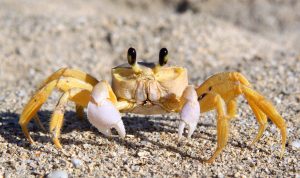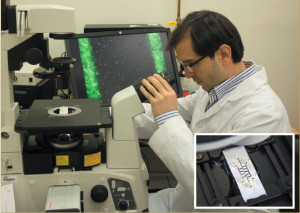 According to the Georgia Institute of Technology, crab shells and trees may soon replace the flexible plastic packaging used to keep food fresh. The innovative process involves spraying multiple layers of chitin from crab shells and cellulose from trees to form a flexible film similar to plastic packaging film. Once fully dried, the material is flexible, strong, transparent, and compostable.
According to the Georgia Institute of Technology, crab shells and trees may soon replace the flexible plastic packaging used to keep food fresh. The innovative process involves spraying multiple layers of chitin from crab shells and cellulose from trees to form a flexible film similar to plastic packaging film. Once fully dried, the material is flexible, strong, transparent, and compostable.
Not only will these lifeforms become a source of sustainable and renewable wrapping, but they will also help improve food quality. Compared to conventional plastic packaging, the new technology offers a 67 percent reduction in oxygen permeability, allowing food to stay fresh even longer.
(more…)
 The ECS Georgia Section recognized the 2024 ECS Georgia Section Outstanding Student Achievement Award winner, Kelsey Anne Cavallaro of the Georgia Institute of Technology, at its fall meeting on November 20, 2024.
The ECS Georgia Section recognized the 2024 ECS Georgia Section Outstanding Student Achievement Award winner, Kelsey Anne Cavallaro of the Georgia Institute of Technology, at its fall meeting on November 20, 2024.




